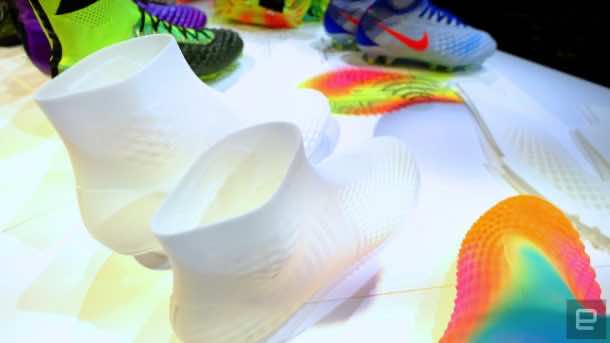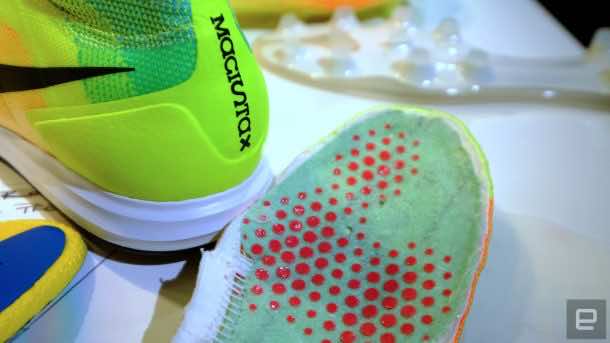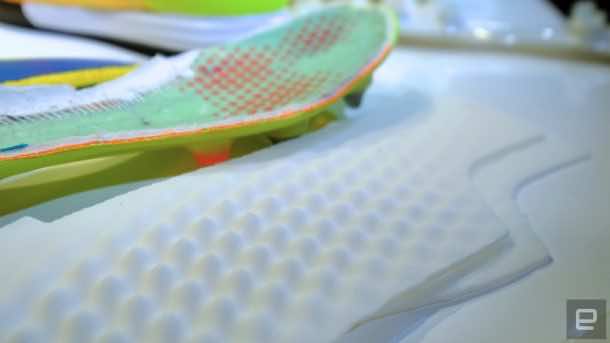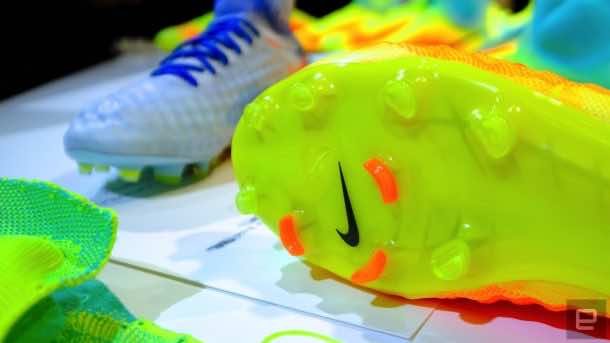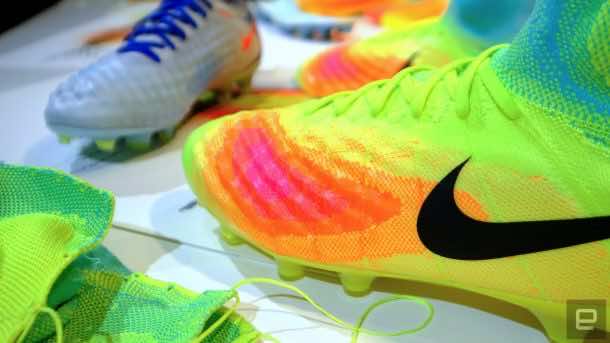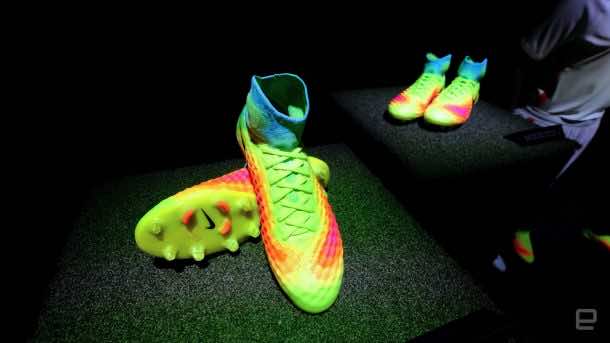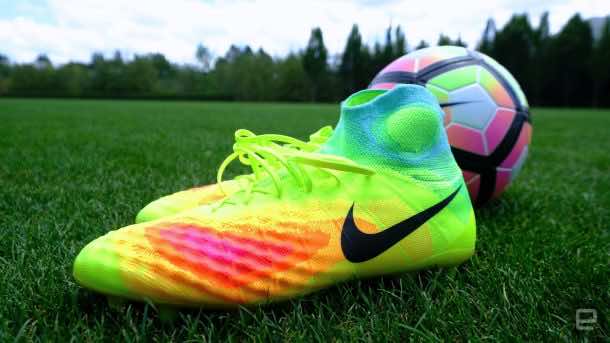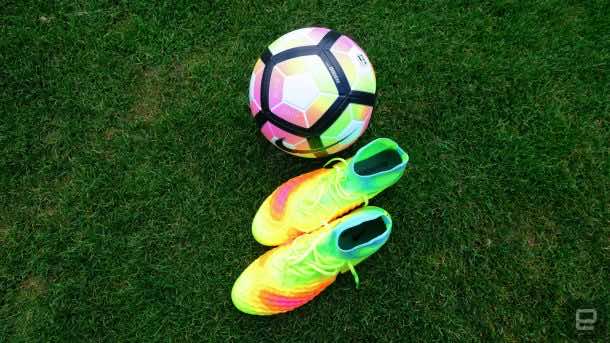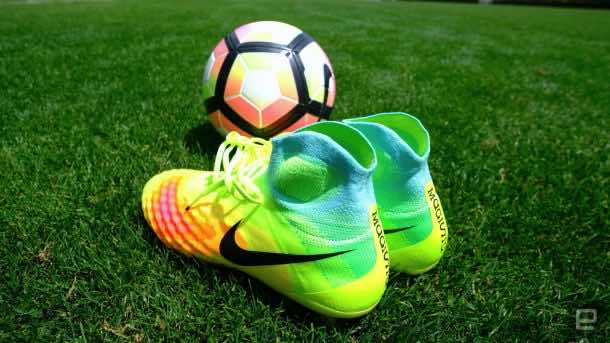Footwear allows the sportsman to perform his best. Nike has taken the athletic footwear game up a notch with the latest Magista 2. It took Nike two years to release the new edition of the original flagship football boots.
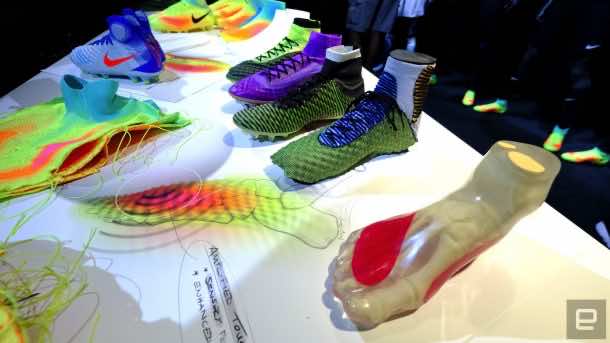
Magista 2 will hit the store tomorrow. The sportswear giant collected data from athletes and 3D printed the prototypes to come up with the final design for the Magista 2.
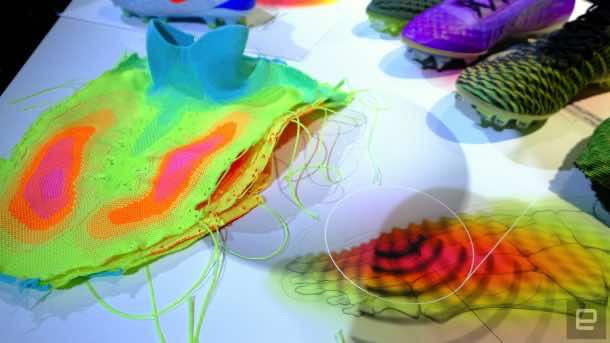
Magista 2 is thirty percent lighter than the original version. Nike employed the Finite Element Analysis (FEA) tool to come up with the design of a new, lighter soleplate. 3D printing technology facilitated the testing of the prototypes as the time required for testing was brought down from weeks to a few hours.
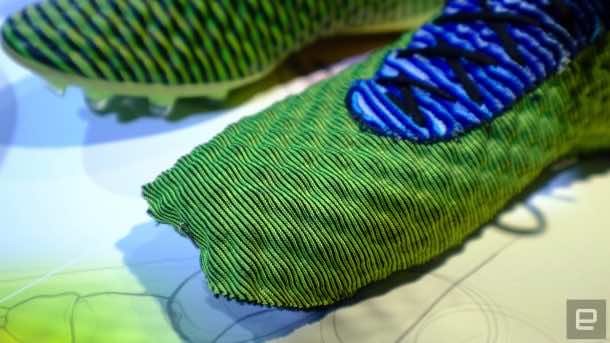
Nathan VanHook, senior design director of Nike Football, said that the 3D-printed soleplate designs for FEA traction were passed through a robotic simulator. The designers and engineers looked for the optimal rotation, acceleration, and deceleration till the right configuration was found.
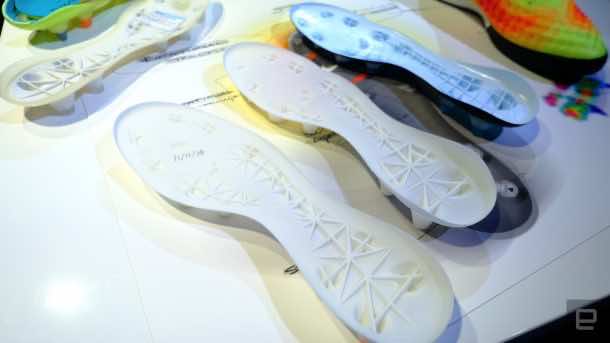
The endless research spanning two years resulted in the creation of a shoe that would perform equally well on an immaculate, rough, wet, dry, or any other sort of field.
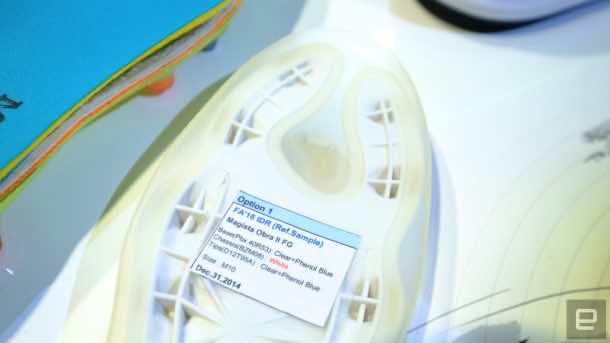
VanHook is a diehard fan of 3D printing.
“You see things right away. We can take the lever and say, ‘Let’s see what the most extreme [thing to do] is,’ and are able to prototype and iterate superfast.”
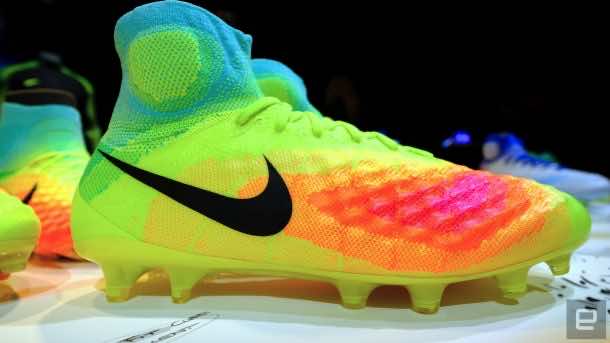
Magista 2 is the most stunning soccer shoe that Nike has produced to date. The Magista 2 flaunts a “heat-map” design that replicates the hot spots where the ball is more likely to interact with the player. For instance, the red indicates foot region with high touch sensitivity.
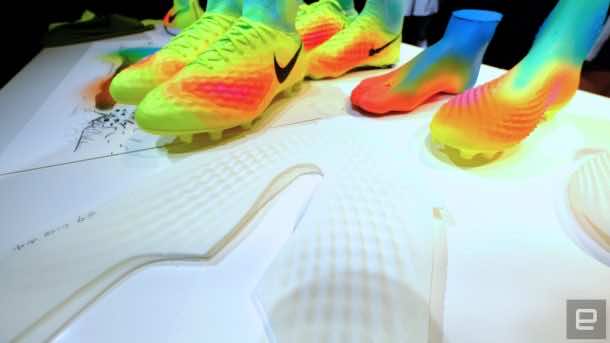
The funny thing is that the design originates from the layout used for data collection during the prototype phase.
“It was pretty amazing when we first started seeing all the data come in and we painted it up. It’s the simplest idea, but it’s really complex how the data came through.”
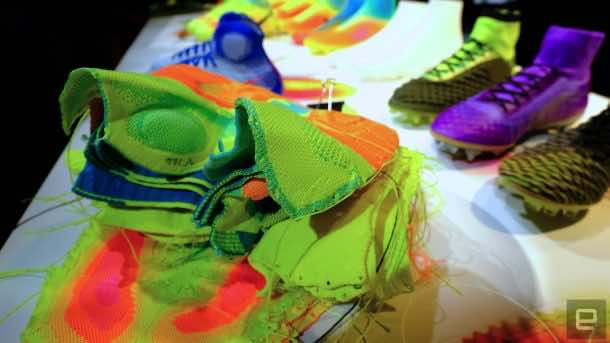
The super-secretive, $40 million Nike Sports Research Lab (NSRL) helped VanHook to finalise the design for the shoe. In 2014, Nike described NSRL as:
“[a facility used for research to] quantify athletes’ movements, the environments they play in and they products they use.”
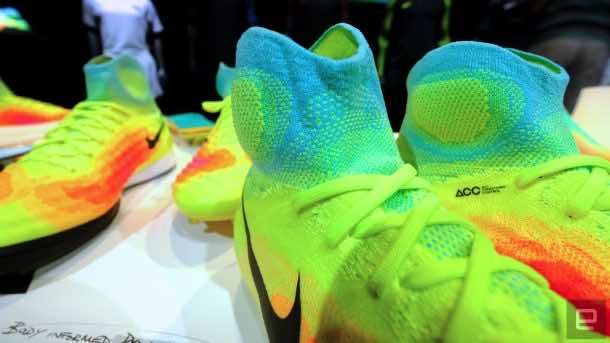
However, Mike Amos, senior researcher at the Nike Sports Research Lab explained NSRL as:
“We deal with a lot of the nerdy stuff in here and we have some excellent designers that can help visualise that [data].”
Just like Adidas’ AlphaBounce, Nike researchers studied how the football interacts with different areas of the foot and how various regions of a foot control the soccer ball.
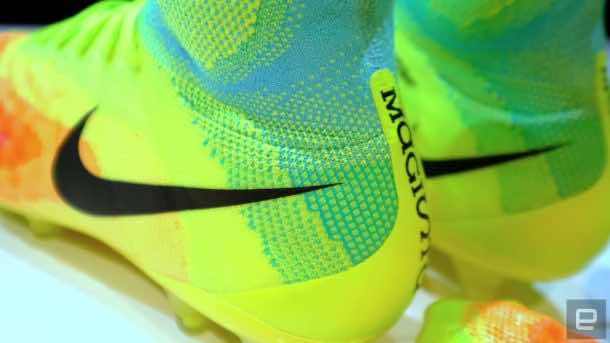
Magista 2 has been fashioned from the FlyKnit material that has become a trademark of the sportswear giant. VanHook described the challenges encountered by the team as it worked hard to come up with the best soccer shoe in the world. It took VanHook and the knit team more than 120 panels of fabric and yarn before they perfected the shape of the cuff around the ankle of Magista 2.
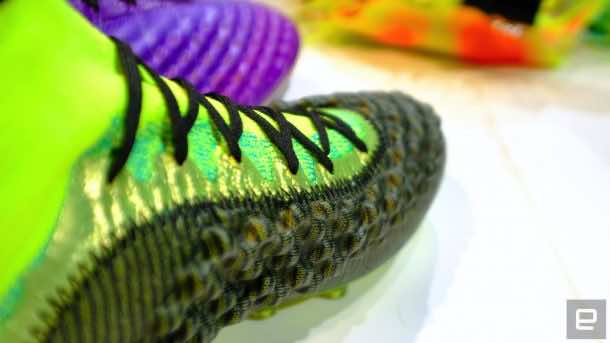
The USA women’s national team will wear a themed Magista 2 to the Rio Olympics. The latest Nike cleats will cost you a whopping $300 a pair while an indoor version will be available for $175.
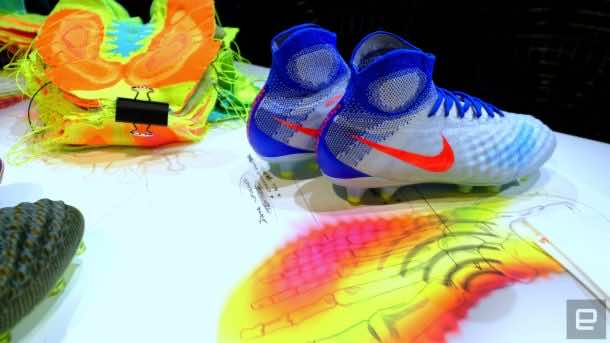
Putting on the Magista 2 feels just like wearing a pair of thick socks. It might not turn you into Ronaldo or Messi, but the new Magista 2 by Nike will definitely improve your game. You can see more images detailing the production process of Magista 2 below:
